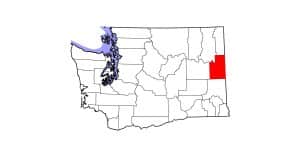Orphan Foal Behavior
- Posted by Nancy Diehl, VMD, MS

Q.A friend recently lost her mare during foaling, and she’s now hand-raising the foal as she hasn’t been able to find a nurse mare. I’ve heard orphan foals can develop some behavior problems if they’re hand-reared. Is this true, and how can my friend prevent these problems from developing? And, while she doesn’t have another mare on the property, there’s an older gelding and his pony friend. Would these horses be suitable companions for the orphan foal?
—Via e-mail
A.Yes, hand-reared foals can develop behavior problems, but they are not necessarily inevitable or irreparable.
As you’ve noted, a nurse mare for an orphan foal would be ideal. If you can still find one, I’d go with that option, as the foal does not have to be a neonate to accept one. The limiting factor is normally the mare accepting the foal. Another good option can be group rearing of orphan foals. Some people do this professionally as a service, or you might find one or two other orphans in your area that could be raised together.
The behavior problems we see with these single, hand-raised orphan foals seem to center on the foal losing a sense of a human’s “personal space” and a dramatic reduction of their own personal space or flight zone. These foals tend to be nippy and pushy. It can look and feel like play run amok, and that’s probably in part what it is. Foals play hard and rough with their mothers and with their cohorts, older foals, and even willing adults. That kind of play, as well as other important social contact, is missing when a foal is raised alone.
By this point you’ve got beyond that critical neonate period where the most important thing was to get adequate colostrum into the foal for proper passive transfer of immunity. I recommend getting this foal on a bucket rather than a bottle as soon as possible. I’ve fed 1- to 2-day-old foals out of buckets (starting with a shallow bowl)—they can figure it out pretty quickly. It decreases the foal’s association of your presence with food, though it doesn’t save that much time and sleep loss, because you will still need to feed many smaller meals over the day. From there you can supplement or wean the foal onto milk replacer pellets, too.
Presumably the foal is healthy and strong, so you can institute some training and expectations for this foal. The hardest thing to remember is that you are feeding the foal, not mothering him. I recommend handling this foal like you would any foal on his mother. Institute haltering, handling his legs and feet, grooming, and basic leading commands. Use positive and negative reinforcement as we’ve discussed before. I find, with foals, one of the best rewards early on is not food but scratching around his withers, neck, and buttocks.
When a foal plays rough with herdmates, the others will either play rough too or they threaten or strongly rebuff his antics. Both of these scenarios are impossible for a human to replicate. So, you need to avoid playing with the foal, and I know that can be difficult. If the foal tries to roughhouse with you, and your lessons with reinforcements haven’t helped to stop the behavior, this might be one of those rare situations when well-timed, appropriate punishment could be useful. It is important to link the punishment only with a very specific behavior you don’t want, like nipping. After administering punishment, try very quickly to reward something positive the foal is doing, even if that is just standing quietly. This will help the foal to learn that one behavior is bad, but he doesn’t need to fear you in general. If your attempt at punishment only increases the foal’s aggression, then it’s not being done appropriately and you should desist and come up with another plan, perhaps getting a professional to help. You can read my previous commentary on punishment and please know, I am not a fan. However, if certain misbehaviors are permitted, they will be harder to resolve as he gets older and possibly lead to a more miserable and misunderstood life as an unruly adult.
I sure think the gelding and pony should be suitable companions as long as they can get along the way we’d judge that with any other horses. So you will want to make introductions carefully to see how it goes. It’s possible the foal will try to suckle on various body parts of these other horses. They might tolerate it or he’ll be rebuffed and learn a good lesson. But these buddies will hopefully be a good outlet for the foal for play and other social learning skills. If these two end up not being suitable for some reason, you can consider getting another species as a buddy, such as a goat or chicken.
Written by:
Nancy Diehl, VMD, MS
Related Articles
Stay on top of the most recent Horse Health news with













3 Responses
Re avoiding punishment, which I agree with, I had a recently gelded 8 year old stallion many years ago, who I’m sure was ‘spoilt’ as a very cute little palomino foal, & didn’t learn respect. He had learned to show his displeasure (or anxiety- in a multi handler livery situation) by jabbing his teeth at the back of the handler’s hand (not biting) while being led. Very painful. I needed to make him decide not to do it, but without causing antagonism, since stallions are designed to fight back if they feel challenged or threatened; there was no element of play with it, though that would still not be acceptable with humans. I devised a woven contraption of artificial basket weaving cane (plastic & slightly flexible) which I held in my lead hand so that pointed ends protruded stiffly about an inch between all my knuckles. Using this, I completely ignored him, no response or arm movement at all, nor looking at him, as I led him to or from the field. He very quickly decided to stop jabbing, as he got sharp prickings in his muzzle, which he realised he was causing, not me. That gave me chance to praise him for walking along nicely, & the situation improved quickly.
Could you explain more about using both positive and negative reinforcement with the foal and gives some examples of when each would be appropriate?
You didn’t mention that you can create your own nurse mare, as long as you have access to a mare. You don’t need a mare that has recently given birth is still lactating to serve as a nurse mare. Giving a mare domperidone will induce lactation after a period of several days. Won’t produce colostrum, but will give the foal the experience of nursing, may be able to supply complete nutrition and will provide the foal with maternal guidance and horse education. It is best to use a mare that has been a mother before. We have done this in the past, although even a few days of hand-rearing can result in a horse with poor ground manners!